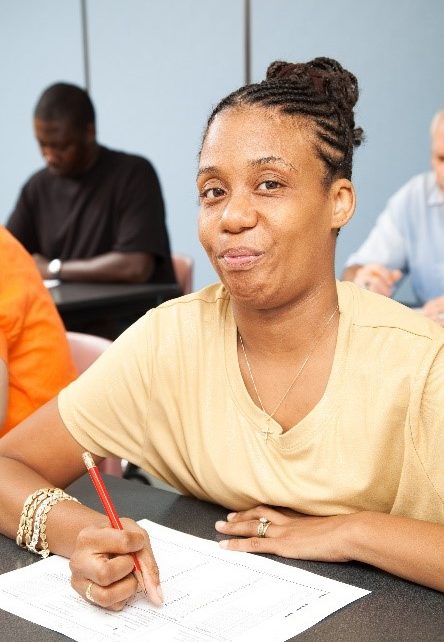Context: The Constitution of the Republic of Mozambique establishes a state obligation to implement a national policy of prevention and treatment, rehabilitation, and social integration of the disabled; these constitutional requirements must be guaranteed in order to effectively ensure the general rights of all citizens, especially the right to work.
Unfortunately, like many communities, Mozambican society is composed of several social stigmas. Some of these stigmas are imperceptible and therefore easily overlooked, but other social stigmas are quite observable and alienating; it is in this social environment that the foundations of discrimination develop. Discrimination against people with physical disabilities in particular is extensive – taking place in various settings ranging from at home, school, on the streets, and even in the workplace; it is within this context that CINFORTÉCNICA was created.
Implementation of programme/ initiative: As a human rights organization, CINFORTÉCNICA seeks to promote and defend the rights of people with disabilities. The main action areas of the initiative are technical and vocational training, facilitating the integration of young people with disabilities into the labor market, and better enabling youth with disabilities for self-employment and social activism.
Objectives:
• Differentiate and better categorize youth with disabilities
• Identify physical and cultural/social barriers and restrictions on the participation of youth with disabilities in the labor market
• Empower people with disabilities to achieve self-employment and income generation.
• Provide formal and alternative education for the disabled
• Carry out the socialization and reintegration of people with chronic disabilities
Main challenges:
• The association itself is led by people with disabilities, who also have to navigate the same obstacles as those they are motivated to help
• Action in response to the organization’s requests of public policy provisions to reduce discrimination of people with disabilities has been slow
• Scarcity of resources is also a major obstacle to the development of the association’s projects
Results achieved:
• In collaboration with other organizations, the association was able to secure the approval of legislation that obliges public buildings to have ramp access to elevators in order to ensure accessibility for people with disabilities. Although this regulation has not yet been fully implemented, the results thus far have been encouraging.
• The integration of people with disabilities into the Mozambique’s labor market is now understood as a decisive factor for social inclusion, economic independence and the consequent personal appreciation and fulfillment of citizens with disabilities.
• CINFORTÉCNICA was able to integrate about 1,500 people with disabilities into the labor market. Additionally, the association was able to mobilize resources to provide wheelchairs for another 1000 young people with locomotive disabilities who would normally not have the money to buy such necessary equipment
• About 180 young people with disabilities were trained in the hotel and tourism sector in particular; 48 of these young people have already found formal jobs (42% of which are young women with disabilities)
• In partnership with the Ministry of Health, CINFORTÉCNICA was able to train a group of 12 health technicians, doctors, and nurses in sign language
• In partnership with UNFPA, CINFORTÉCNICA facilitated the training of 60 activists in sign language which they could then teach in secondary schools in Zambézia, Nampula, and Tete
• Through partnering with the Japan International Cooperation Agency JICA, CINFORTÉCNICA was able to train 12 undergraduate trainers in matters of independent living for people with disabilities
• In partnership with the Brazilian Government, CINFORTÉCNICA receives two scholarships for selected participants to pursue undergraduate study in Brazil. The beneficiaries are responsible for the updating of training programs in Mozambique and replication of the training program in various provinces throughout the country.
• A sexual and reproductive health education program is being negotiated for the visually impaired and hearing impaired. This program will be supported directly by UNAIDS and UNFPA and will benefit 1800 youth with disabilities in the country’s major cities.
| Moving Forward: |
CINFORTÉCNICA is primarily driven by the passion its members have for the organization’s cause; going forward it is expected that members will continue to create self-sustainable, income generating activities. Additionally, the organization plans to implement its ‘Social Entrepreneurship Project’ a program which offers integrated instruction on entrepreneurship.
| Replicability: |
The program can be easily replicated and is quite needed considering youth with disabilities are often among the most marginalized in many countries. Youth with disabilities reside in every country, but few are offered specialized and tailored opportunities that will enable them to enter the workforce; furthermore, they are often faced with societal discrimination. It is important to identify solutions to the difficulties youth with disabilities face in all our societies; CINFORTÉCNICA is completely willing to provide all technical and structural support to anyone who wishes to replicate the initiative.
| References |
– Annual reports, CINFROTÉCNICA – Memorandums of understanding with cooperation partners. |
Project Details
Date: November 20, 2017
